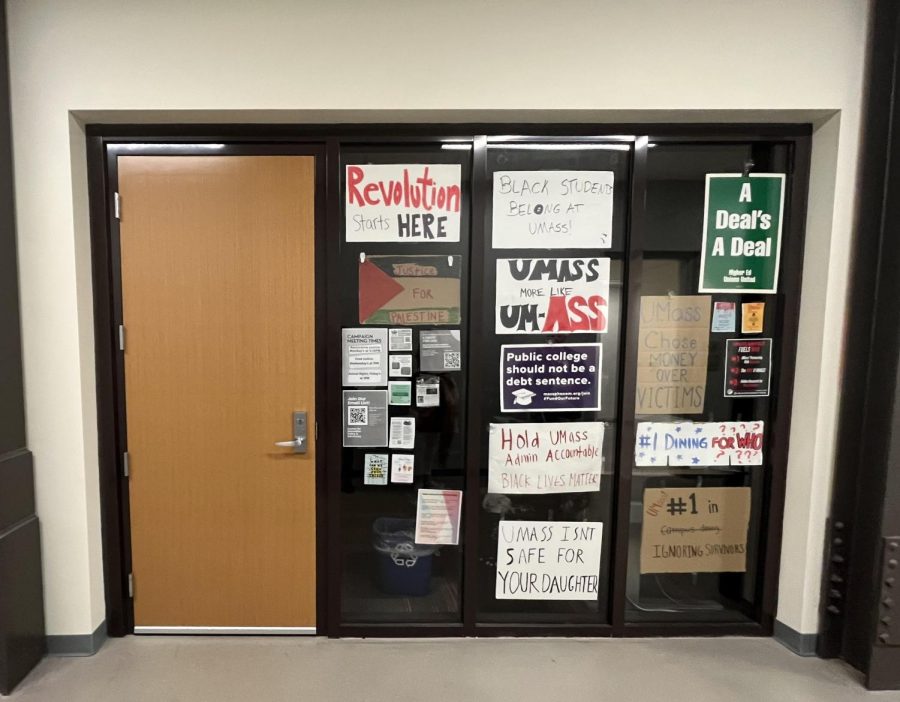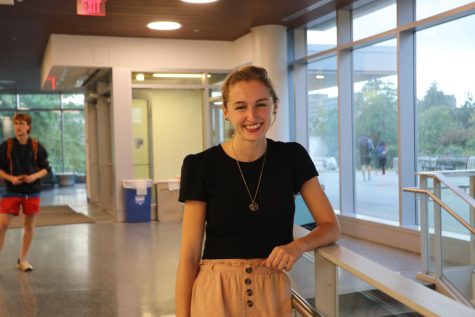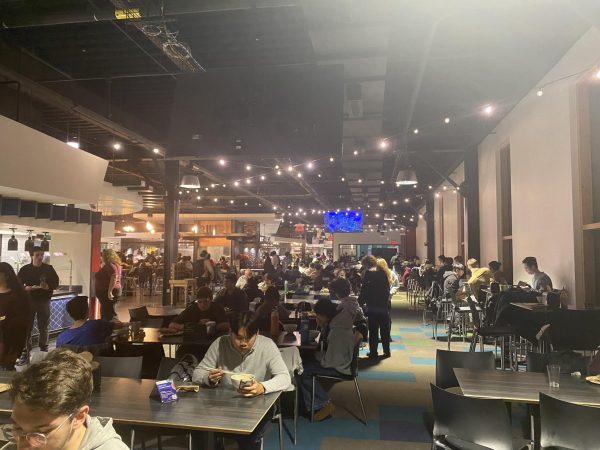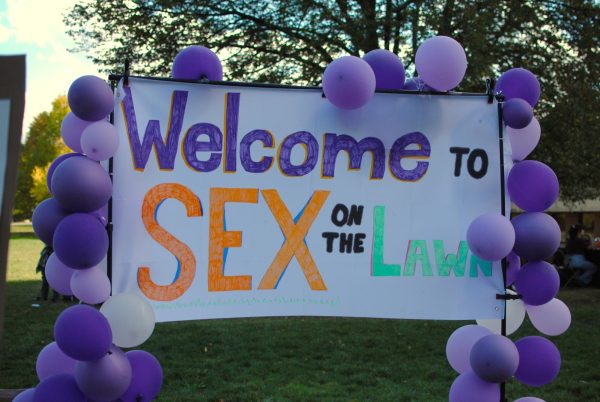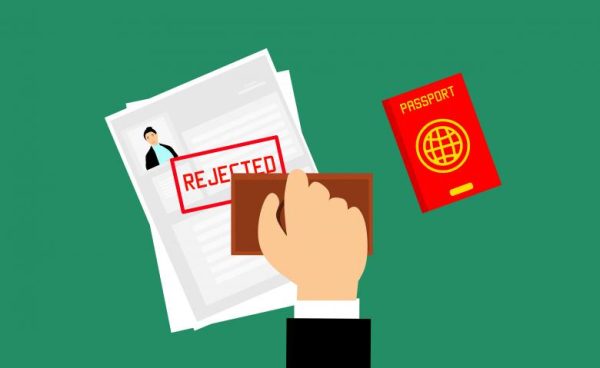Survivor’s Justice Coalition holds meeting to discuss sexual violence on campus
The group proposes four demands to hold administration accountable
On Tuesday, the Survivor’s Justice Coalition (SJC) held its first general body meeting of the semester to highlight the student population, discuss plans for the year and organize around holding the administration accountable.
The SJC is a student-led group that aims to provide support for survivors of sexual violence and hold the UMass administration accountable for its handling of sexual violence cases. Last year, the group held a sit-in at Whitmore Administration Building, hosted a public forum with administration, led a “protest with poetry” event and organized a reproductive rights protest.
“I think that one of the biggest injustices is to have an institution that is meant to protect its students, when they’re ignoring their students and not holding perpetrators accountable,” said Anna Morel-Paletta, a junior BDIC human rights major who co-founded the group during the Theta Chi protests last year.
At the meeting, SJC discussed four demands of the administration:
- Disassociate permanently from Theta Chi.
- Create clear and enforceable disciplinary guidelines for Greek life.
- Investigate all current and former reported sexual assault cases by an outside firm.
- Implement more sexual violence prevention programs.
“I don’t think I’ve talked to anyone, whether it’s in the SGA, SJC or just any UMass student that cares about human rights… [who is] really satisfied with the university’s response,” said Morel-Paletta.
Last year, the administration passed the Survivor’s Bill of Rights, established a Title IX Student Advisory Task Force and required fraternity and sorority members to participate in a training program on sexual misconduct awareness, which remained mandatory this year. The university also announced a collaboration with Comprehensive Investigations and Consulting (CIC) to investigate reports of sexual misconduct over the past seven years.
“Based on their findings, the state of the law, and national best practices,” read an email sent to students in August, “CIC will make recommendations to expand sexual assault prevention efforts, increase reporting of offenses, and promote a culture of transparency, communication and safety for the campus community.”
According to the email, results from the consulting firm were expected in October.
“It’s kind of discouraging to hear over and over again, by the administration, that steps will be taken and then nothing really happens,” said Morel-Paletta.
Since last year’s protests, SJC membership has dwindled but remains steadfast in its goals.
This year, SJC plans to create a publication for students to write about rape culture and other issues, and intends on holding a “denim day” event during Sexual Assault Awareness month in April.
Morel-Paletta also proposed establishing a Survivor Advocacy Group, which would train members on trauma-informed approaches and Title IX. The group would serve as a liaison for connecting survivors to mental health resources.
“We have to really remember, just because the protest stopped doesn’t mean these issues are going away,” said William Calvin Thompkins, a member of the Title IX Student Advisory Task Force. “That’s why I’m here… I want to make sure that we’re putting pedal to the metal and not letting it die down.”

